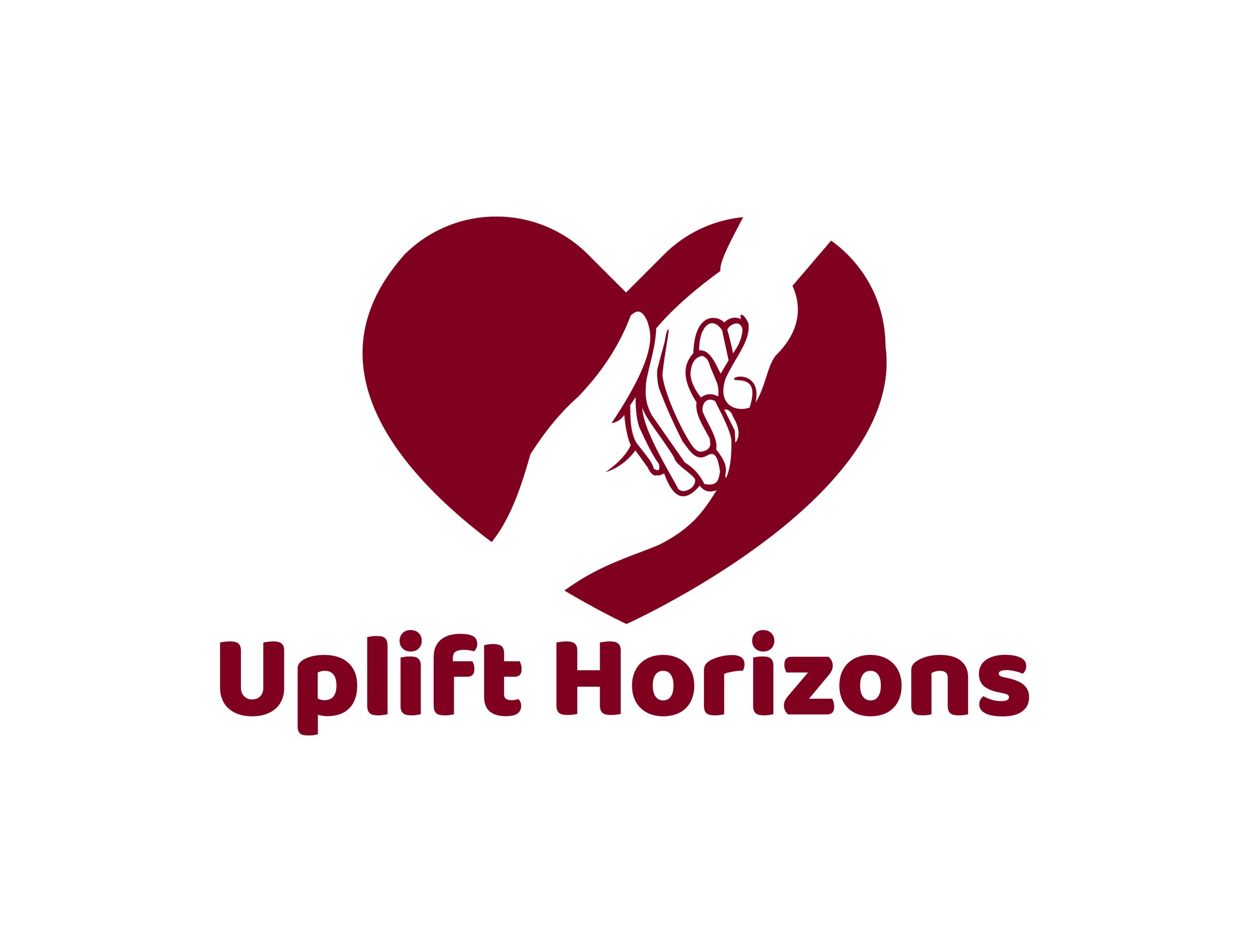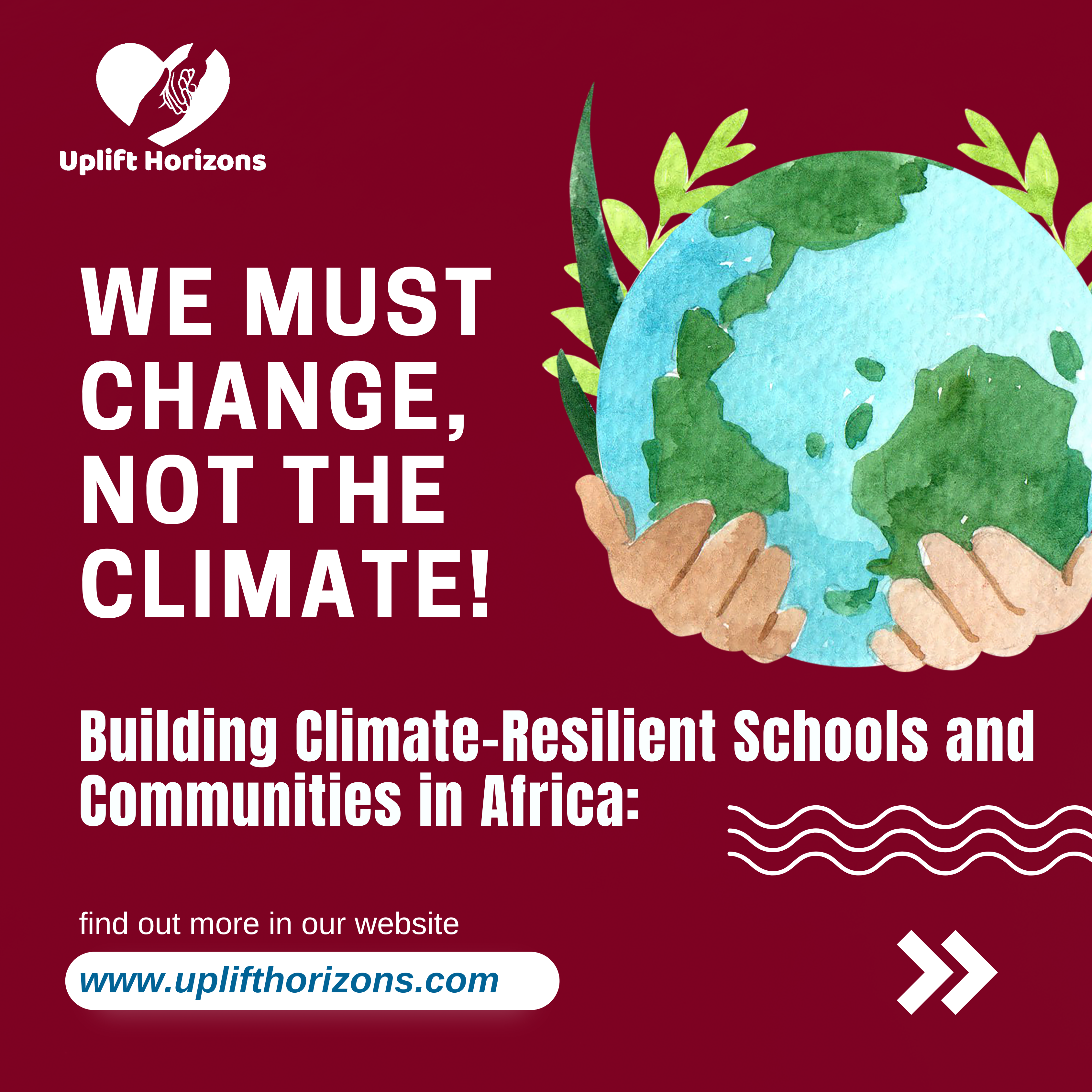Introduction:
As Africa grapples with the multifaceted challenges posed by climate change, there is a growing recognition of the need to build resilience at both the individual and community levels. Uplift Horizons is committed to addressing this pressing issue by advocating for the integration of climate resilience and mental health education into school curricula and community programs. This article explores strategies for empowering schools and communities to navigate the impacts of climate change while promoting mental well-being.
The Intersection of Climate Change and Mental Health:
Climate change poses significant threats to mental health, exacerbating stress, anxiety, depression, and trauma among individuals and communities. From extreme weather events to food insecurity and displacement, the effects of climate change are far-reaching and can lead to profound psychological distress. Recognizing this intersectionality is essential for developing holistic approaches to climate resilience and mental health promotion.
Integration into School Curricula:
One strategy for building climate-resilient schools is to integrate climate resilience and mental health education into existing curricula. By incorporating topics such as climate science, environmental stewardship, and coping strategies for climate-related stress, students can develop the knowledge and skills needed to navigate environmental challenges while maintaining their mental well-being. Interactive and experiential learning activities, such as community gardening projects and disaster preparedness drills, can enhance students’ understanding and resilience.
Community-Based Programs:
In addition to schools, community-based programs play a crucial role in fostering climate resilience and mental health awareness. Uplift Horizons advocates for the implementation of grassroots initiatives that engage community members in collaborative problem-solving and skill-building activities. These programs may include community gardens, resilience workshops, peer support groups, and mental health first aid training. By empowering communities to take collective action, these programs strengthen social cohesion and promote adaptive capacity.
Partnerships and Collaborations:
Building climate-resilient schools and communities requires collaborative efforts involving government agencies, NGOs, educational institutions, and local stakeholders. Uplift Horizons facilitates partnerships to leverage resources, expertise, and networks in support of climate resilience and mental health initiatives. By fostering cross-sectoral collaborations, we can maximise impact and promote sustainable solutions.
Conclusion:
As Africa faces the complex challenges of climate change, integrating climate resilience and mental health education into school curricula and community programs is essential for building adaptive capacity and promoting well-being. Uplift Horizons remains committed to advocating for these strategies and empowering schools and communities to thrive in the face of environmental uncertainty.
References:
- Berry, H. L., Bowen, K., & Kjellstrom, T. (2010). Climate change and mental health: a causal pathways framework. International Journal of Public Health, 55(2), 123–132.
- Clayton, S., Manning, C. M., Krygsman, K., & Speiser, M. (2017). Mental Health and Our Changing Climate: Impacts, Implications, and Guidance. Washington, DC: American Psychological Association, and ecoAmerica.
- Niles, M. T., & Salerno, J. D. (2021). Climate change impacts on mental health and well-being: A scoping review. International Journal of Environmental Research and Public Health, 18(17), 8872.
- World Health Organization. (2018). Climate Change and Health. Retrieved from https://www.who.int/news-room/fact-sheets/detail/climate-change-and-health





